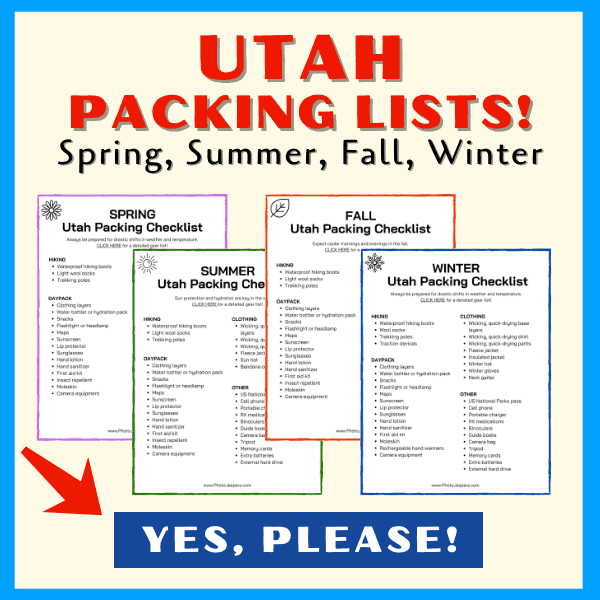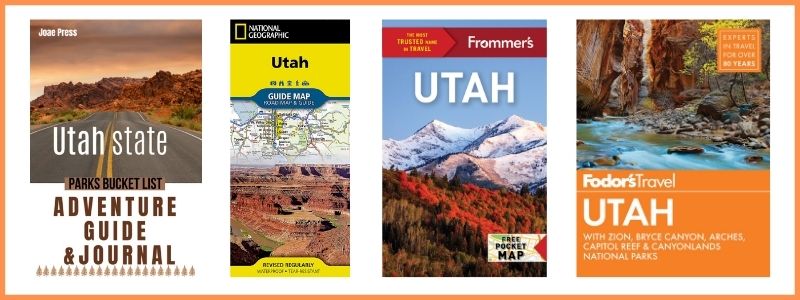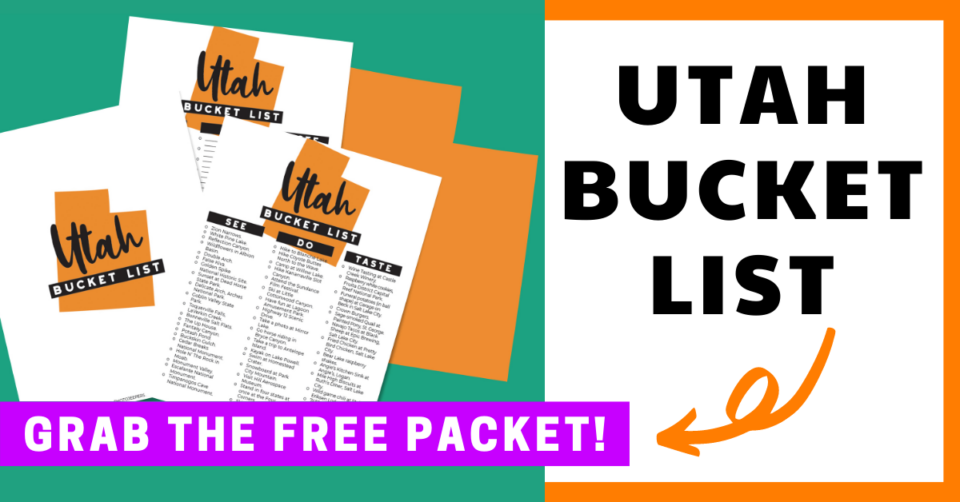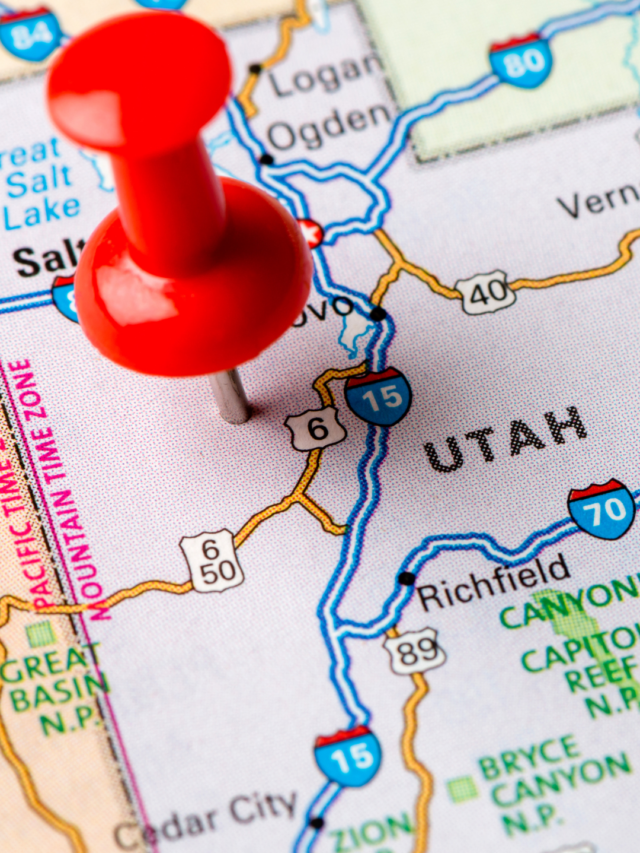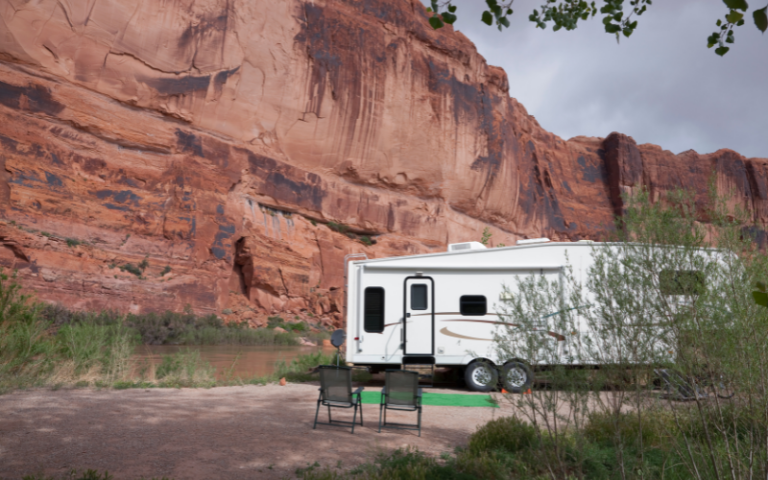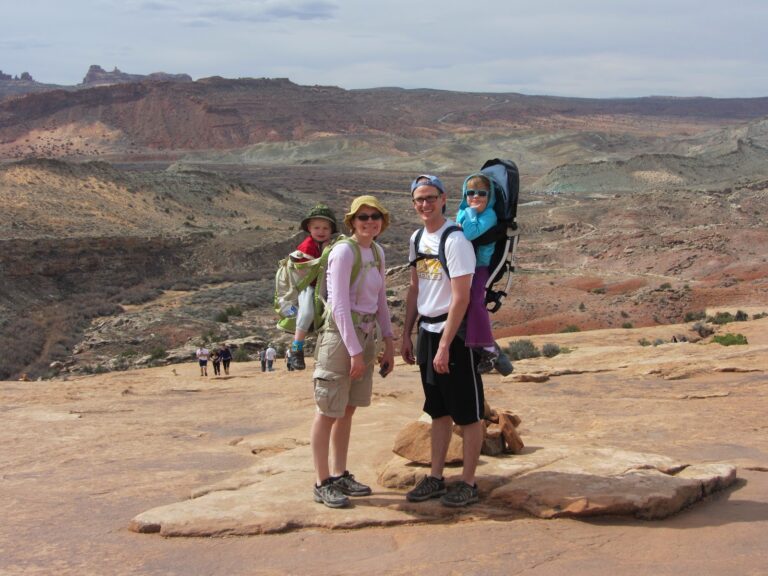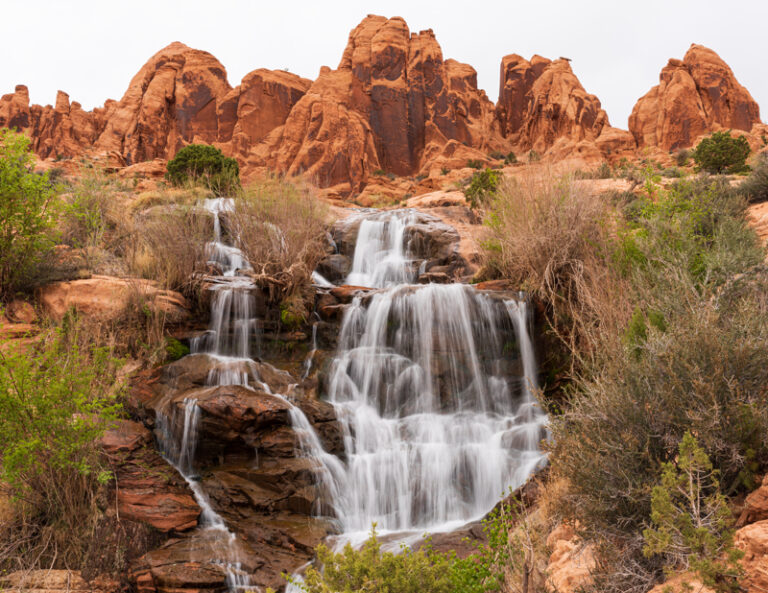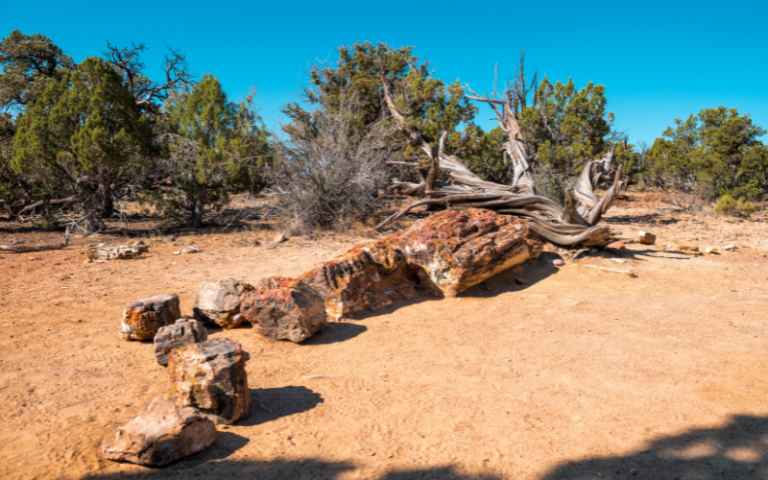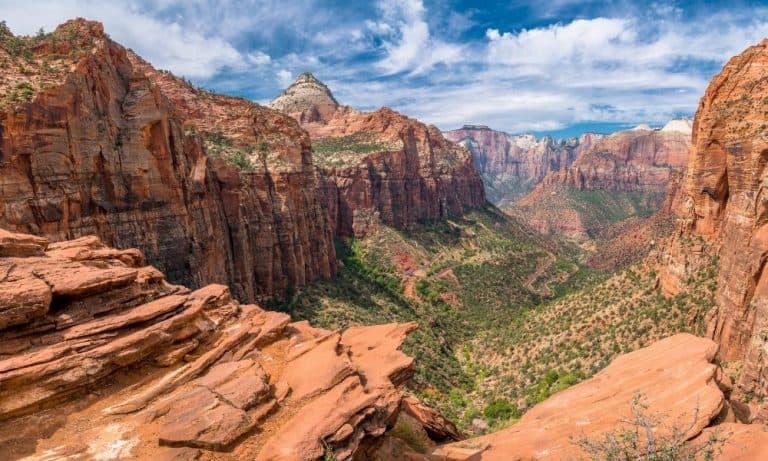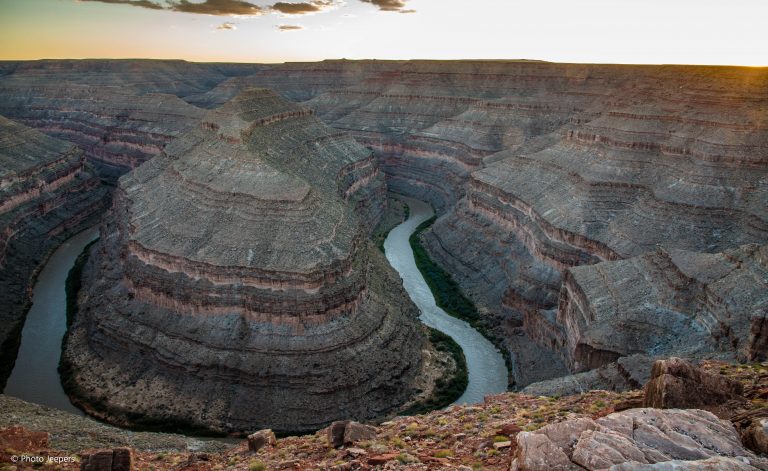Travel Guide For The Best Time To Visit Utah
Looking to visit Utah, but can’t decide the best time of year? Here are some tips on the best time to visit Utah, including temperatures, snow and rain fall, crowds, and of course, fall foliage.
To answer this question we need to look at the various places to visit in Utah and whether they are in Northern or Southern Utah.
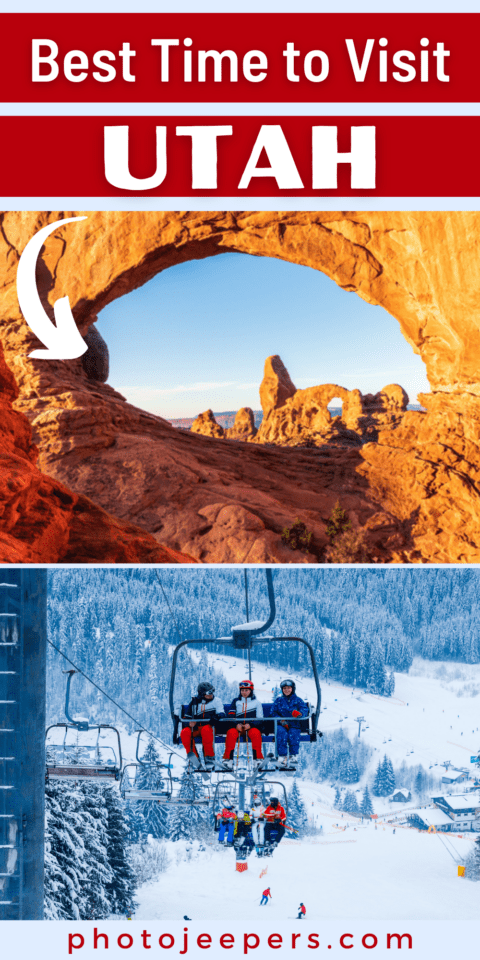
Below you’ll learn what it’s like when visiting Northern and Southern Utah in the spring, summer, fall, and winter.
And we’ll recommend Utah vacation spots to visit during each season of the year.
This site contains affiliate links which means WE may receive commissions for purchases made through these links. We only provide links to products we actually use and/or wholeheartedly recommend! As an Amazon Associate, we earn from qualifying purchases. Read the full Disclosure Policy.
Northern and Southern Utah
In Northern Utah you’ll find mountains, forests, lakes and reservoirs where you can ski, hike, stargaze or camp.
It’s also the location of Utah’s biggest cities where you’ll find vibrant main streets and downtown centers with night life, festivals, historic buildings and performing arts.
In Southern Utah you’ll find all 5 Utah National Parks that feature red rocks, arches, hoodoos, river-carved canyons, and more!
There’s an equally stunning list of Utah State Parks and National Monuments where you can enjoy hiking, biking, off-roading, canyoneering, river rafting, and more!
Best Time to Visit Utah
Take a look at the weather and temperatures to expect during each month of the year in Utah:
- Utah in January
- Visiting Utah in September
- Visiting Utah in October
- Utah in November
- Utah in December
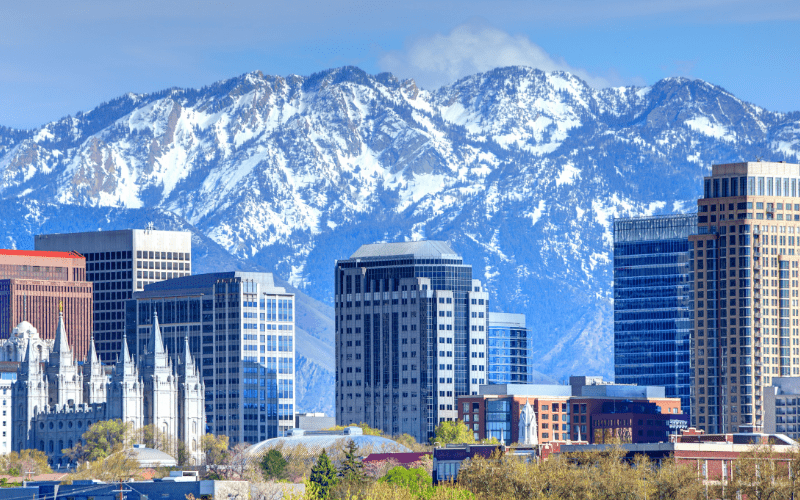
Here’s what to expect in Northern and Southern Utah during the spring, summer, fall, and winter – plus some Utah vacation ideas for each season of the year.
Spring in Northern Utah
Spring is a wonderful time to visit northern Utah when Northern Utah temperatures are at their mildest:
- March highs 55 / lows 38
- April highs 63 / lows 44
- May highs 72 / lows 52
However, you do need to keep an eye out for spring snow storms. Mountain areas in northern Utah get snow regularly into April.
Snowmelt and spring rain may also present muddy hiking trails. Northern Utah has an average of 25% chance or rain in the spring months.
Utah destinations in the spring:
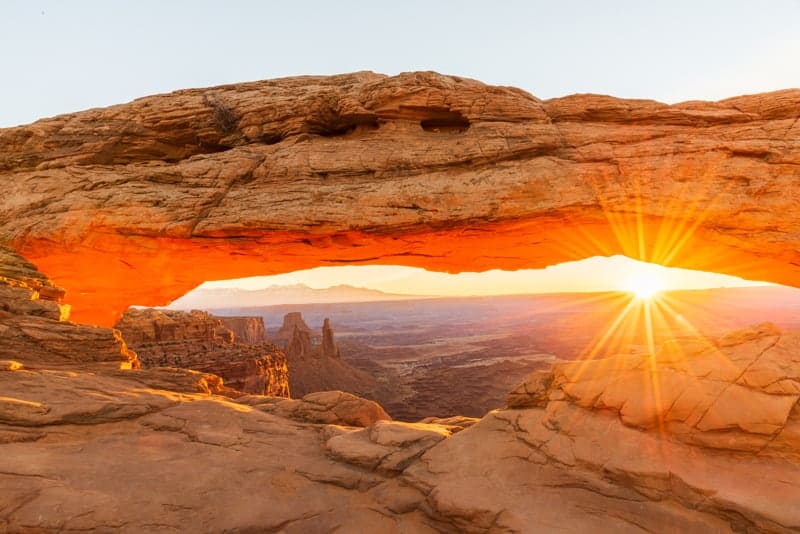
Spring in Southern Utah
If you’re wanting to visit southern Utah and Utah National Parks in the spring, you will find the best temperatures of the year. Early spring there is a risk of snowfall so be prepared for stormy weather and stay updated on road conditions.
- March highs 70 / lows 42
- April highs 79 / lows 48
- May highs 88 / lows 57
Southern Utah destinations in the spring:
- Utah National Parks in March
- Utah National Parks in April
- Utah National Parks in May
- Moab in the spring
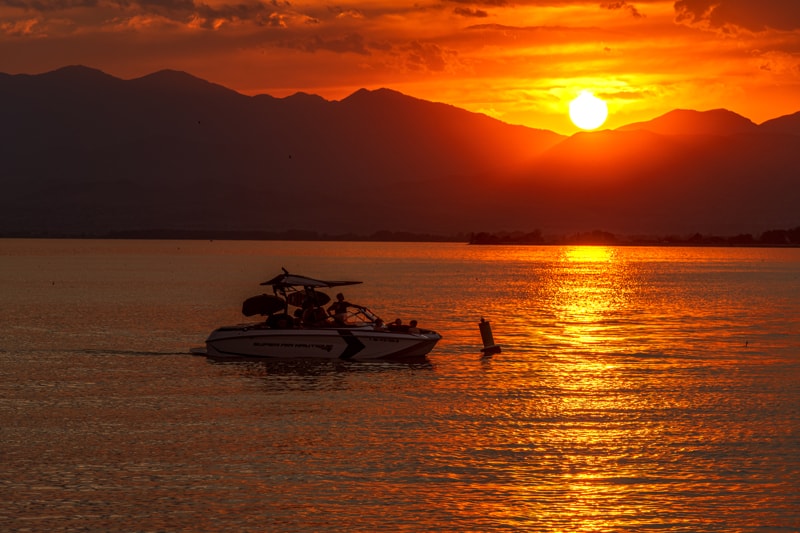
Summer in Northern Utah
Summer is not our favorite time to visit Utah. Even in the northern part of the state, temperatures easily reach 100F in July and August. It’s dry, hot, and miserable, and the greenery is mostly dead.
- June highs 83 / lows 61
- July highs 90 / lows 68
- August highs 90 / lows 67
Escape to the mountains or enjoy lake activities if you choose to visit northern Utah in the summer. Typically, temperatures are 10-15 degrees cooler at higher elevations than in the valley. Plus, there will be more shade in the mountains.
Utah destinations in the summer:
- Utah Destinations for Summer
- Utah Summer Vacation Ideas
- Park City Utah Summer Attractions
- Things to do at Utah Lake State Park
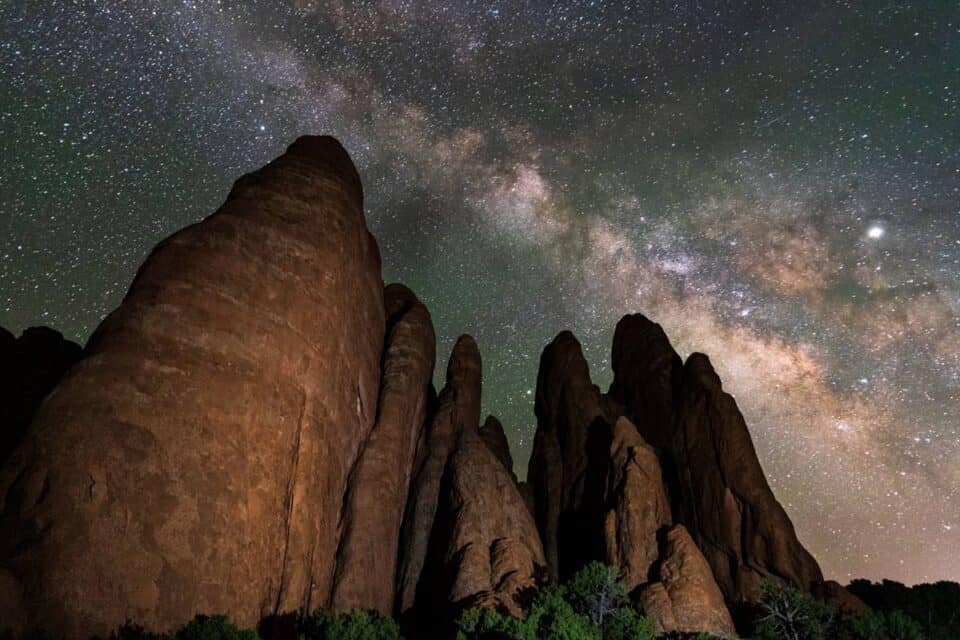
Summer in Southern Utah
You’ll find unbearably HOT temperatures and crowds at Utah National Parks in the summer.
- June highs 99 / lows 66
- July highs 104 / lows 74
- August highs 102 /lows 72
Stay cool by visiting the parks early in the morning, or just before dusk. Or check out southern Utah’s lakes and reservoirs. A dip at Sand Hollow State Park or Lake Powell is sure to cool you off.
Southern Utah destinations in the summer:
- Utah National Parks in June
- Utah National Parks in July
- Utah National Parks in August
- Moab in the Summer
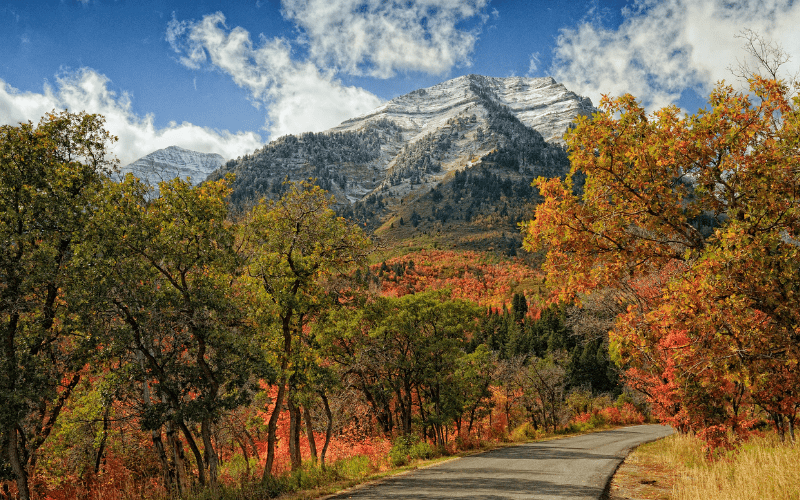
Fall in Northern Utah
Cooler temperatures and more predictable precipitation make Fall a great time to visit northern Utah.
- September highs 79 / lows 58
- October highs 66 / lows 47
- November highs 51 / lows 36
Not only that, but the fall foliage in Utah is spectacular. The last two weeks of September are typically the peak of fall foliage in northern Utah’s canyons and hiking trails.
Utah destinations in the fall:
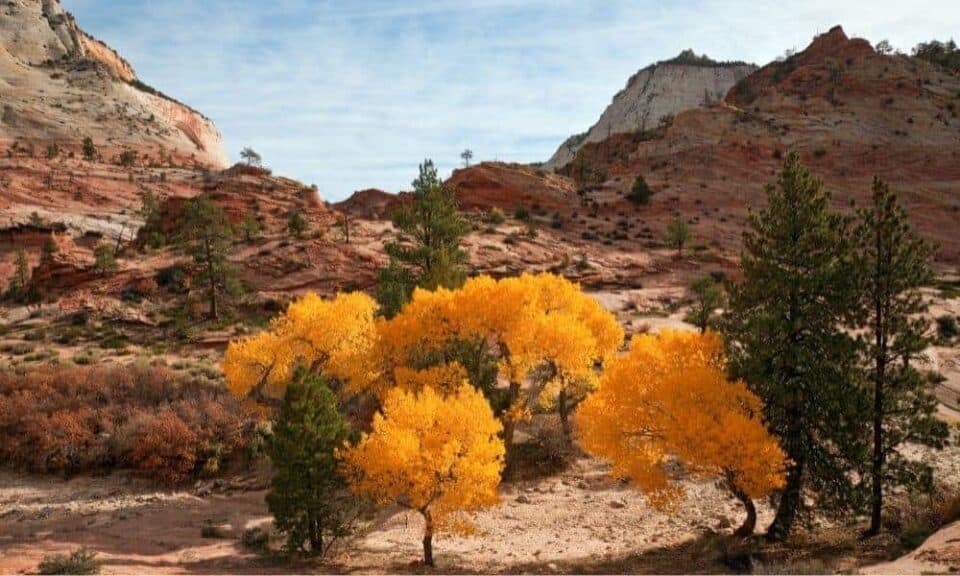
Fall in Southern Utah
Fall temperatures in southern Utah last an enjoyable two months. But fall is a busy time of year at all Utah National Parks so be prepared for crowds!
- September highs 98 / lows 63
- October highs 82 / lows 50
- November highs 67 / lows 38
While you may consider southern Utah to have less fall foliage than in the north, there are plenty of beautiful fall colors on display the last two weeks of September, and into early October. Zion National Park in the fall is the top place to visit for colorful foliage in southern Utah, but don’t miss Capital Reef, Escalante, and Panguitch as well.
Southern Utah destinations in the fall:
- Utah National Parks in the Fall
- Moab in the Fall
- Dead Horse Point State Park
- Visiting Goblin Valley State Park
- Visiting Coral Pink Sand Dunes State Park
- Visiting Kodachrome Basin State Park
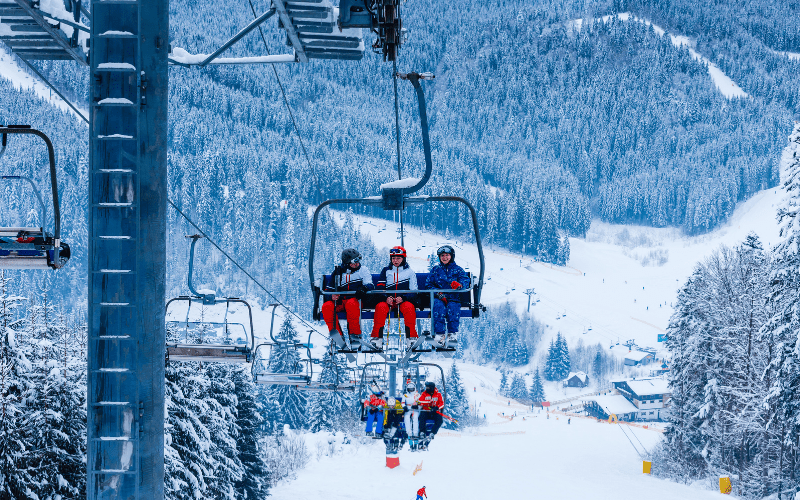
Winter in Northern Utah
Skiing, snowboarding, and other winter sports are the main reason for visiting northern Utah in the winter. Salt Lake City gets an average of 10 inches of snow per month in December and January, but ski areas such as Alta, Snowbird, and Brighton average 500 inches of snow each winter.
In the valleys, you can expect these average temperatures in the winter:
- December highs 39 / lows 27
- January highs 40 / lows 27
- February highs 45 / lows 31
Utah destinations in the winter:
- Utah in the Winter
- Activities and places to visit in Utah in the winter
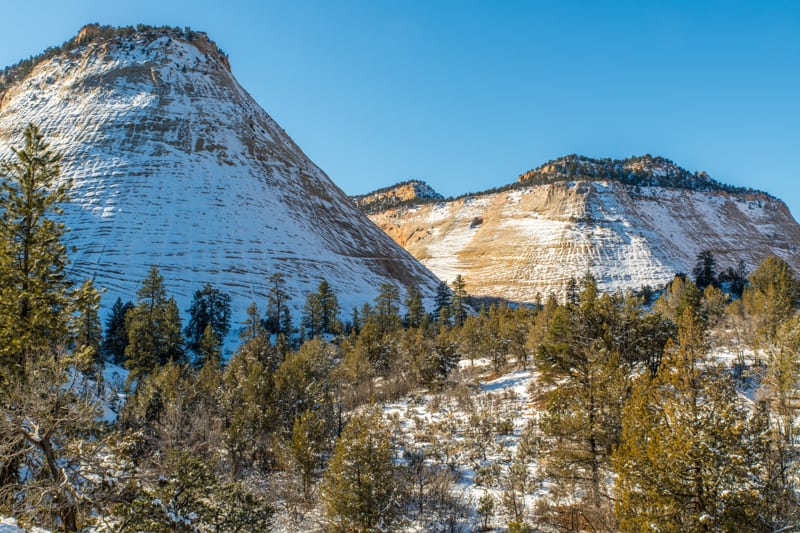
Winter in Southern Utah
Our favorite time of year to visit the Utah National Parks is winter! The crowds are gone and you’ll enjoy off-season pricing.
- December highs 56 / lows 31
- January highs 56 / lows 31
- February highs 62 / lows 36
Keep in mind that the high elevation at Bryce Canyon in the winter means snow and freezing temperatures occur nightly from October to May.
The hiking trails in Southern Utah are open year round, but may close due rain or snow storms that roll through the area. It’s always recommended to know the current weather and road conditions for the area you’ll be visiting
Southern Utah destinations in the winter:

